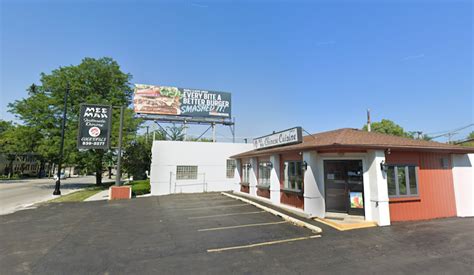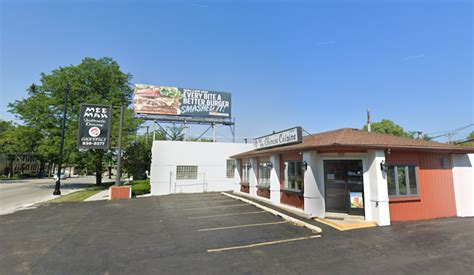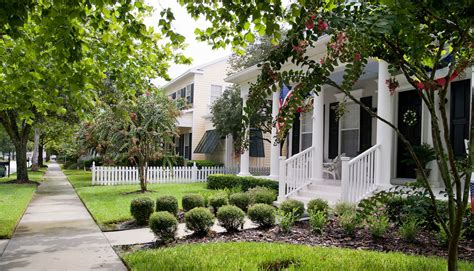
A Chicago culinary institution, Manny’s Cafeteria & Delicatessen, a fixture for generations known for its traditional Jewish fare and no-frills atmosphere, has abruptly shuttered its doors after more than 80 years in business, leaving loyal patrons shocked and saddened. The closure, announced on Tuesday, marks the end of an era for the iconic South Loop eatery that served as a gathering place for politicians, celebrities, and everyday Chicagoans.
Manny’s closed due to a combination of factors, including declining revenue, rising costs, and the lingering impact of the COVID-19 pandemic. According to third-generation owner Dan Raskin, the decision was not made lightly. “It’s been a tough few years, and we just couldn’t make it work anymore,” Raskin stated. “We want to thank all of our customers for their support over the years. It’s been an honor to serve you.”
The sudden announcement caught many by surprise, as Manny’s had remained a beloved destination even as other classic delis in the city faded away. Regulars described the restaurant as more than just a place to eat; it was a community hub where generations of families celebrated milestones and shared meals. News of the closing spread quickly on social media, with many expressing their dismay and sharing fond memories of the establishment.
Manny’s Cafeteria & Delicatessen opened its first location in 1942 on Roosevelt Road by Jack Raskin. He was joined by his brother Manny, and eventually, Manny bought Jack out. It remained there until 1952, when it moved to 1141 S. Jefferson, where it stayed for the next 64 years. In 2018, Manny’s made the move to its final location at 11 South Clark Street in the Loop.
The cafeteria was famed for its piled-high corned beef sandwiches, matzo ball soup, potato pancakes, and other traditional Jewish delicacies. It also became known for its unique, no-nonsense service style. It wasn’t uncommon to find owner Dan Raskin working the floor, joking with customers, and occasionally offering unsolicited advice. This personal touch, combined with the unpretentious atmosphere, contributed to Manny’s enduring appeal.
The deli had become a favorite stop for politicians, celebrities, and sports figures. Former presidents, mayors, and countless actors and athletes had dined at Manny’s over the years. Its walls were adorned with photographs of famous patrons, serving as a testament to its cultural significance. In the wake of the news, Chicago Mayor Brandon Johnson released a statement acknowledging Manny’s significance to the city’s cultural landscape. “Manny’s was more than just a restaurant; it was a part of Chicago’s history,” Johnson stated. “It will be missed.”
The closure of Manny’s Cafeteria & Delicatessen represents a significant loss for Chicago’s culinary scene. It’s a reminder of the challenges faced by small businesses, particularly restaurants, in an increasingly competitive and unpredictable market. It also underscores the importance of preserving culinary traditions and supporting the local establishments that contribute to a city’s unique identity.
A History of Manny’s: From Roosevelt Road to Chicago Icon
Manny’s Cafeteria & Delicatessen’s journey began in 1942 during World War II, when founder Jack Raskin opened its doors at Roosevelt Road. The simple cafeteria quickly garnered a loyal following with its generous portions of traditional Jewish comfort food at affordable prices.
The business grew and Jack was joined by his brother Manny, who ultimately bought Jack out. For the next decade, it served as a neighborhood staple, drawing in locals craving authentic deli fare. In 1952, Manny’s relocated to a larger space on South Jefferson Street, where it would remain for the next 64 years, solidifying its status as a Chicago institution.
The Jefferson Street location became synonymous with Manny’s. Its no-frills interior, featuring rows of cafeteria-style counters and communal tables, fostered a sense of community and camaraderie. Diners would line up for their favorite dishes, often striking up conversations with strangers while waiting. The aroma of corned beef, pastrami, and simmering soups permeated the air, creating a sensory experience that evoked feelings of nostalgia and comfort.
During its time on Jefferson Street, Manny’s became a popular gathering place for politicians, celebrities, and sports figures. Its proximity to the city’s downtown area made it a convenient lunch spot for business professionals and government officials. The restaurant’s unpretentious atmosphere and hearty food also appealed to visiting celebrities and athletes, who sought a taste of authentic Chicago culture.
In 2018, Manny’s embarked on a new chapter, relocating to a modern space on South Clark Street in the heart of the Loop. The move was intended to ensure the restaurant’s long-term viability by attracting a wider customer base and taking advantage of the area’s high foot traffic. While the new location offered a more contemporary setting, Manny’s remained committed to its core values of quality food, generous portions, and friendly service.
The decision to close Manny’s after more than eight decades in business marks the end of an era for Chicago’s culinary landscape. The restaurant’s legacy as a beloved institution will endure in the memories of generations of Chicagoans who shared meals and created lasting connections within its walls.
The Secret to Manny’s Enduring Appeal
Manny’s Cafeteria & Delicatessen’s long-standing success can be attributed to a combination of factors, including its commitment to quality ingredients, generous portions, and unpretentious atmosphere. However, perhaps the most important ingredient in its recipe for success was the personal touch provided by the Raskin family.
For three generations, the Raskin family poured their hearts and souls into Manny’s, ensuring that every customer felt like a valued guest. They were known for their warm hospitality, their willingness to go the extra mile, and their genuine passion for sharing their family’s culinary traditions.
Owner Dan Raskin, who took over the business from his father, often worked the floor, greeting customers, cracking jokes, and offering unsolicited advice. His presence created a sense of familiarity and connection that made Manny’s feel like a home away from home for many.
The restaurant’s staff also played a crucial role in its success. Many of Manny’s employees had worked there for decades, becoming an integral part of the restaurant’s identity. They were known for their friendly service, their knowledge of the menu, and their ability to anticipate customers’ needs.
Manny’s commitment to quality ingredients was another key factor in its enduring appeal. The restaurant used only the finest cuts of meat, the freshest produce, and the highest-quality spices. Its corned beef was slow-cooked to perfection, its pastrami was expertly seasoned, and its matzo ball soup was made from scratch.
The restaurant’s generous portions were also a major draw. Manny’s was known for its piled-high sandwiches, its overflowing bowls of soup, and its heaping plates of potato pancakes. Customers always left feeling satisfied and well-fed.
Finally, Manny’s unpretentious atmosphere contributed to its appeal. The restaurant was a place where everyone felt welcome, regardless of their background or social status. It was a place where people could come to relax, enjoy a good meal, and connect with others.
The Economic Challenges Leading to Closure
While Manny’s Cafeteria & Delicatessen enjoyed a loyal following and a strong reputation, the restaurant faced a number of economic challenges in recent years that ultimately led to its closure. These challenges included declining revenue, rising costs, and the lingering impact of the COVID-19 pandemic.
The restaurant industry has become increasingly competitive in recent years, with a growing number of restaurants vying for customers’ attention. Manny’s faced competition from both established chains and trendy new eateries.
In addition to increased competition, Manny’s also faced rising costs for ingredients, labor, and rent. The price of meat, produce, and other essential ingredients has steadily increased in recent years, putting pressure on restaurants’ profit margins. The minimum wage has also increased in many cities, including Chicago, adding to labor costs.
The COVID-19 pandemic had a devastating impact on the restaurant industry, forcing many restaurants to close temporarily or permanently. Manny’s was forced to close its doors for several months during the pandemic, and even after it reopened, business was slow to recover.
Many customers were hesitant to dine out due to concerns about the virus, and the restaurant was forced to operate at reduced capacity to comply with social distancing guidelines. The pandemic also disrupted supply chains, making it difficult for Manny’s to obtain certain ingredients.
These economic challenges made it increasingly difficult for Manny’s to remain profitable. Despite its best efforts, the restaurant was unable to overcome these obstacles, and the owners made the difficult decision to close its doors.
Reactions and Remembrances: The City Mourns a Loss
The news of Manny’s Cafeteria & Delicatessen’s closure sent shockwaves through Chicago, prompting an outpouring of grief and fond remembrances from loyal patrons, local politicians, and fellow restaurateurs. Social media platforms were flooded with messages expressing sadness and nostalgia, as people shared their personal memories of the iconic eatery.
Many Chicagoans recalled visiting Manny’s with their families for generations, celebrating special occasions, or simply enjoying a comforting meal. They reminisced about the aroma of corned beef and pastrami, the friendly service, and the lively atmosphere.
“Manny’s was more than just a restaurant; it was a part of my family’s history,” wrote one commenter on Facebook. “We’ve been going there for decades, and it’s where we celebrated countless birthdays, anniversaries, and graduations. It’s going to be so strange not having it around anymore.”
Local politicians also expressed their sadness at the news, acknowledging Manny’s significance to Chicago’s cultural landscape. Mayor Brandon Johnson released a statement praising Manny’s as a “true Chicago institution” and thanking the Raskin family for their decades of service to the city.
“Manny’s was a place where people from all walks of life could come together and enjoy a delicious meal,” Johnson said in his statement. “It was a place where you could always count on a warm welcome and a hearty portion of food. It will be deeply missed.”
Fellow restaurateurs also shared their condolences, recognizing the challenges faced by small businesses in the industry. Many praised Manny’s for its commitment to quality and its enduring legacy.
“Manny’s was a true inspiration to me,” said the owner of a nearby deli. “They showed us all that it was possible to run a successful restaurant for decades by focusing on quality food, friendly service, and a commitment to the community.”
The closure of Manny’s Cafeteria & Delicatessen represents a significant loss for Chicago’s culinary scene. It’s a reminder of the importance of supporting local businesses and preserving the traditions that make the city unique.
The Future of Chicago’s Deli Scene
The closure of Manny’s Cafeteria & Delicatessen raises questions about the future of Chicago’s deli scene. While there are still a number of traditional delis operating in the city, they face increasing competition from newer restaurants and changing consumer preferences.
Many younger diners are drawn to more innovative and trendy dining experiences, while older generations may be less willing to venture out to restaurants. This shift in consumer preferences poses a challenge for traditional delis, which must adapt to attract new customers while still maintaining their core values.
One way that delis can adapt is by offering a wider variety of menu items. In addition to traditional deli fare, they can offer salads, soups, and vegetarian options. They can also experiment with new flavors and ingredients, while still staying true to their roots.
Another way that delis can attract new customers is by improving their online presence. They can create websites and social media accounts to showcase their menu, promote special offers, and engage with customers. They can also offer online ordering and delivery services to make it easier for customers to get their food.
Finally, delis can focus on creating a welcoming and inviting atmosphere. They can renovate their spaces, add outdoor seating, and host special events to attract new customers. They can also focus on providing excellent customer service to build loyalty and word-of-mouth referrals.
While the future of Chicago’s deli scene is uncertain, there is still a strong demand for traditional deli fare. By adapting to changing consumer preferences and focusing on quality, service, and community engagement, delis can continue to thrive in the city for many years to come.
FAQ: Manny’s Cafeteria & Delicatessen Closure
Q1: Why did Manny’s Cafeteria & Delicatessen close?
A1: Manny’s closed due to a combination of factors, including declining revenue, rising costs, and the lingering impact of the COVID-19 pandemic, making it unsustainable to continue operations.
Q2: How long was Manny’s in business?
A2: Manny’s Cafeteria & Delicatessen was in business for over 80 years, having been founded in 1942.
Q3: What was Manny’s known for?
A3: Manny’s was known for its traditional Jewish deli fare, including piled-high corned beef sandwiches, matzo ball soup, potato pancakes, and its no-frills, cafeteria-style atmosphere. It was also known as a gathering place for politicians, celebrities, and everyday Chicagoans.
Q4: Where was Manny’s located?
A4: Manny’s had multiple locations throughout its history. It originally opened on Roosevelt Road in 1942, then moved to 1141 S. Jefferson in 1952, and finally relocated to 11 S. Clark Street in the Loop in 2018 before closing.
Q5: Will Manny’s ever reopen?
A5: As of the closure announcement, there are no plans to reopen Manny’s Cafeteria & Delicatessen. The Raskin family expressed gratitude for the support over the years but cited insurmountable economic challenges as the reason for the permanent closure.









